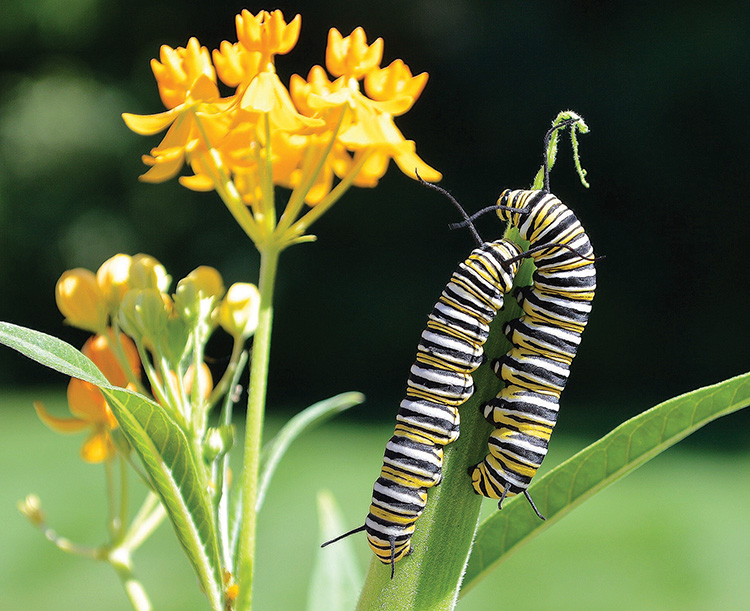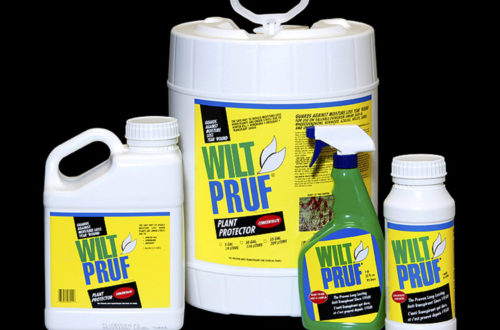By Diane St. John
[Editor’s Note: At the Connecticut Flower & Garden Show in February 2015 this became a contentious topic. We asked Diane St. John of Natureworks for clarification.]
MAY-JUNE 2015 – In Connecticut, we have several perennial, native milkweed species that are the larval food source for monarch butterfly caterpillars. They include the widely available Asclepias syriaca (Common Milkweed), Asclepias tuberosa(Butterfly Weed) and Asclepias incarnata (Swamp Milkweed).
Asclepias curassavica (Tropical Milkweed) is an annual milkweed. It grows quickly in containers and dies when the cold weather comes. The monarch nectars at its flowers and lays eggs on its leaves, just like the perennial milkweeds.
There has been a lot of press saying this annual milkweed should not be grown or used to raise and feed monarch caterpillars. In Connecticut, it is not harmful to monarch caterpillars.
Tropical milkweed has been shown, in southern states where the plants live year round, to have a higher chance of carrying a deadly parasite, Ophryocystis elektroscirrha (OE). OE is killed when the plant dies in late fall and does not overwinter in Connecticut.
Tropical Milkweed is a wonderful complement to our native milkweed. A butterfly enthusiast can easily grow it on a deck in a container and it will attract not only monarchs, but many other butterfly species and many other pollinators who enjoy its flowers.
It can be added to sunny perennial borders where you may not want common milkweed. It flowers all summer and into the fall.
People who may want to raise monarch butterflies can also put a small pot of Tropical Milkweed into a rearing net to watch the caterpillars eat and grow on right the plant.
Don’t be afraid to plant Asclepias curassavica this year in Connecticut. You won’t harm the monarch population, you may even help it!





